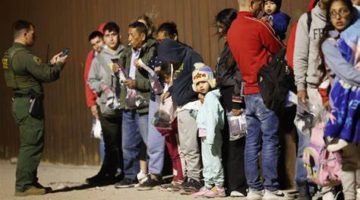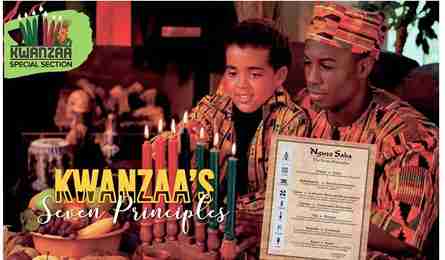Courtesy of the Official Kwanzaa Website and Kwanzaa Guide
The Kwanzaa holiday was created to introduce and reinforce seven principles which were viewed as core value systems for healthy and thriving families, stable, loving and caring relationships, effective parenting practices, school achievement, and non violent, safe and productive communities. Thus, the seven days of the Kwanzaa holiday are organized around the seven principles of Kwanzaa: Unity, Self-Determination, Collective Work and Responsibility, Shared Wealth, Purpose, Creativity and Faith.
Umoja – Unity: To strive for and maintain unity in the family, community, nation and race.
The Umoja Principle instructs that each member of the family and, by extension, the community, is constituted by a web of interpersonal relationships. The health and possibilities of the family and community, therefore, is dependent upon the quality of relationship within the family and community.
Kujichagulia – Self Determination: To define ourselves, name ourselves, create for ourselves and speak for ourselves.
The Kujichagulia Principle says African Americans, like all people, need shared cultural values, symbols, rituals and practices in order to give their families and children meaning and value, and identity and community.
Ujima – Collective Work and Responsibility: To build and maintain our community together and make our brother’s and sister’s problems our problems and to solve them together.
The Ujima Principle teaches each family member to recognize that their own well-being is derived from their family and community’s well being; that they must be concerned with the overall health of their family and community; and that the lives of each family member and that of the community are bound together.
Ujamaa – Cooperative Economics: To build and maintain our own stores, shops and other businesses and to profit from them together.
The Ujamaa Principle empowers families and communities to come together around their collective economic interest and to see their economic strength in co-opt owning and buying as in employee-owned credit unions.
Nia – Purpose: To make our collective vocation the building and developing of our community in order to restore our people to their traditional greatness.
The Nia Principle instructs each family member to see him or herself as linked to the larger project of nation building. “An individual has not started to live until he or she can rise above the narrow confines of his or her individualistic concerns to the broader concerns of humanity,” instructed Dr. Martin Luther King, Jr.
Kuumba – Creativity: To do always as much as we can, in order to leave our community more beautiful and beneficial than we inherited it.
The Kuumba Principle demands continuous improvement in personal, family and social matters. George Washington Carver taught that “No one has a right to come into the world without leaving behind a distinct and legitimate reason for having passed though it.”
Imani – Faith: To believe with all our heart in our people, our parents, our teachers, our leaders and the righteousness and victory of our struggle.
The Imani Principle teaches personal and collective efficacy. Mary McLeod Bethune said, “Without faith nothing is possible; with faith nothing is impossible. Faith in God is the greatest power, but great too is faith in one- self.” Howard Thurman said faith is the “promise of tomorrow at the close of every- day, the triumph of life in the defiance of death.”













No Comment